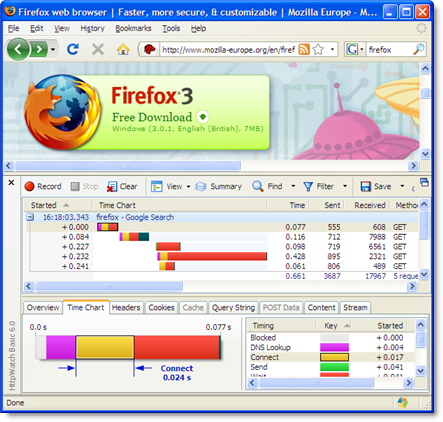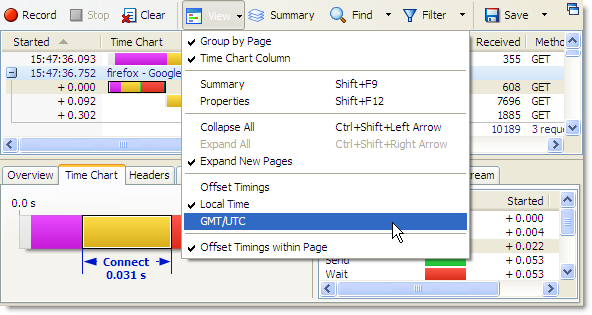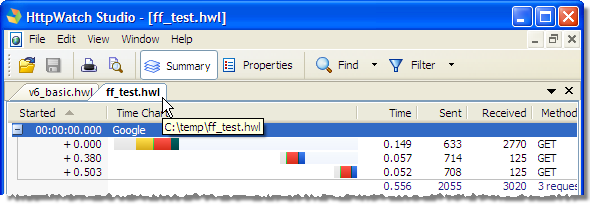
HttpWatch version 6.0 has been released and is now available for download.
Any customers eligible for a free upgrade to HttpWatch Professional can install the latest version using their existing license key. If you’re not sure whether your license will work with version 6.0 go to Help->Check For Updates in HttpWatch and it will show you any available updates or upgrades.
What’s New?
The major new feature in this release is support for Firefox 2.0 and 3.0 on Windows. If you install version 6.0 you’ll get an HttpWatch status bar icon in Firefox:

Clicking on the icon will open the same HttpWatch user interface that’s previously only been available in Internet Explorer:

A few other areas have also been improved to accommodate Firefox. First of all there’s a new Properties window that displays information about the browser that recorded a log file:

The comment field allows simple notes and annotations to be saved with each log file.
The automation interface has been updated to include the data from the Properties window and to allow automation of HttpWatch within Firefox:

We’ve also done some work on the way that Start times are displayed. You can now choose between time offsets, local time and GMT/UTC. The latter can be particularly useful when trying to compare log files from other monitoring tools and other locations world-wide:

And finally, HttpWatch Studio now has tabs making it easier to switch between log files:

Compatibility with Version 5.x
We’ve kept the file format unchanged from version 5.x, so you can readily exchange log files with version 6.0. Although you cannot view some of the information such as the comment and browser version in version 5.x, this data is maintained if you re-save the log file and then re-open it in version 6.0.
The automation interface maintains backwards source compatibility with interpreted script clients and binary compatibility with existing compiled clients (e.g. C#, C++, VB.Net). However, if you attempt to recompile an automation program with version 6.0, you may need to make some source code changes. For example, the New method has moved from the Plugin object onto the Firefox and IE objects.
 HttpWatch version 6.0.17 is now available for download and includes support for the Firefox 3.1 Beta 1.
HttpWatch version 6.0.17 is now available for download and includes support for the Firefox 3.1 Beta 1.





